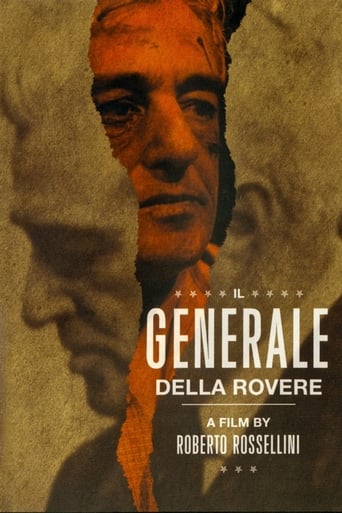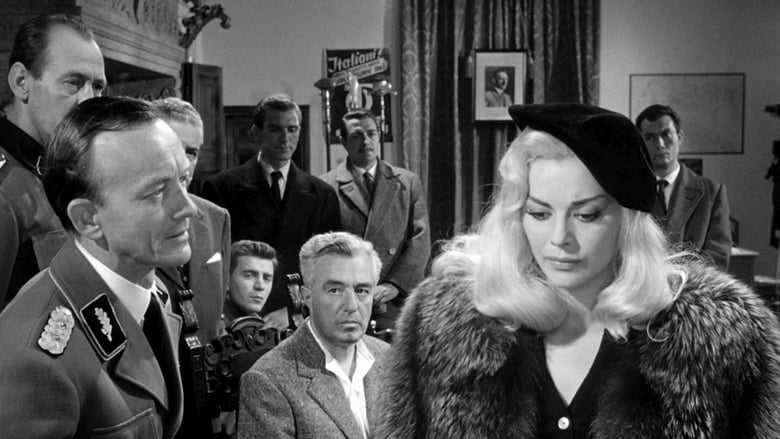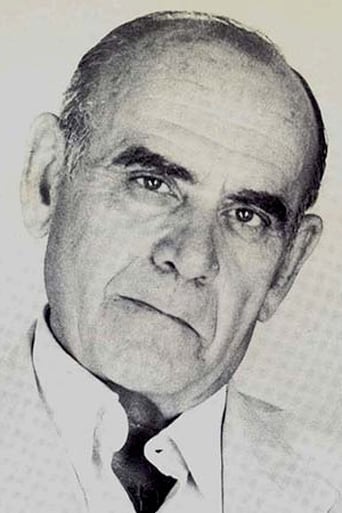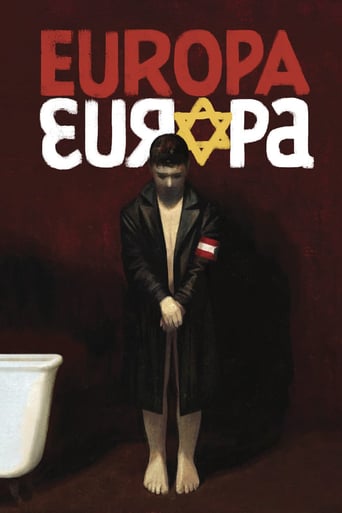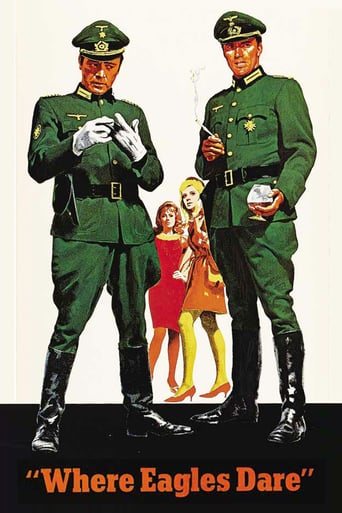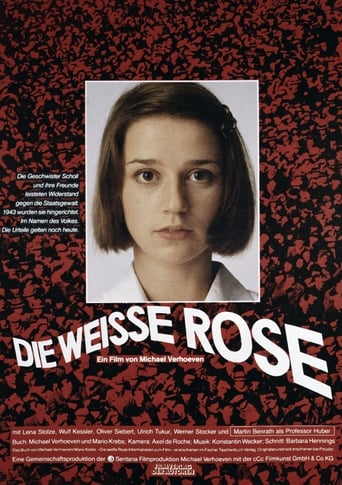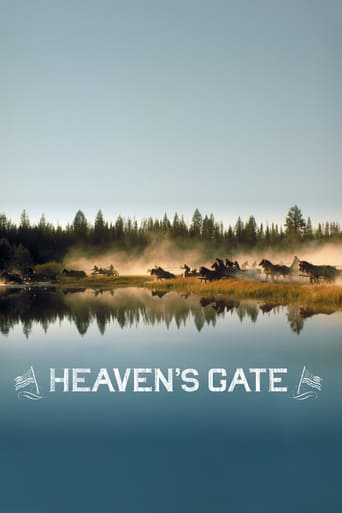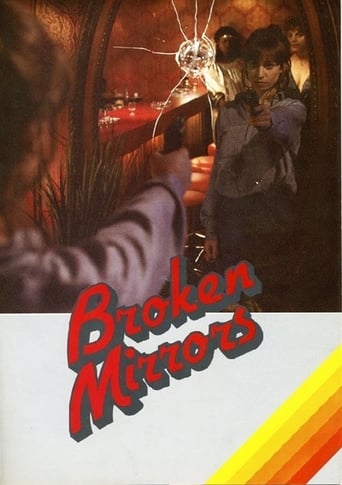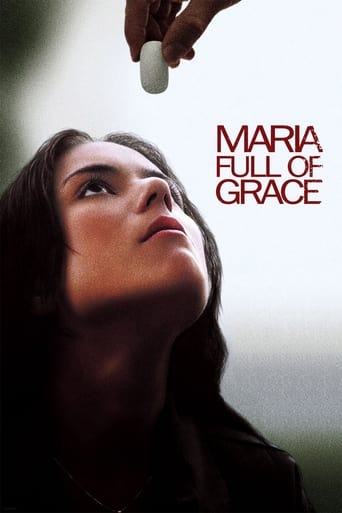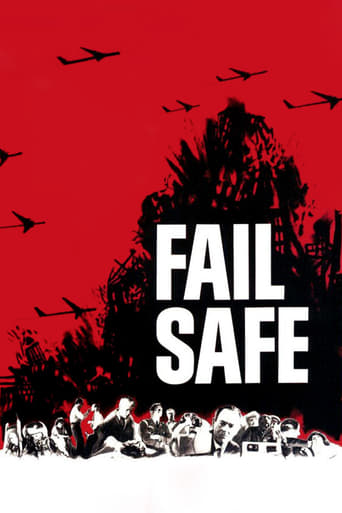General Della Rovere (1959)
The Gestapo forces con man Victorio Bardone to impersonate a dead partisan general in order to extract information from his fellow inmates.
Watch Trailer
Cast


Similar titles
Reviews
So much average
i must have seen a different film!!
A lot of perfectly good film show their cards early, establish a unique premise and let the audience explore a topic at a leisurely pace, without much in terms of surprise. this film is not one of those films.
By the time the dramatic fireworks start popping off, each one feels earned.
As great as Open City was, I think I like this one better because of its element of redemption. Also, I must confess I like that Rossellini has largely dispensed with his trademark neo-realism in favor of a more conventional narrative style. Instead of being on location, in the streets, most of his shots here are on sets, once even resorting to rather cheesy process shots. Otherwise, his sets are so well done, that I assumed, for example, that a cavernous prison block was real rather than constructed. Rossellini has thus created a play without being stagy. And the acting! Of course, this is Vittorio De Sica's movie. De Sica was larger than life, and Rossellini worked at governing the bombast. In fact, De Sica's distinguished stature -- silver mane and powerful build -- kept me from getting right into his Bardone character as a weasel. But perhaps it was that stature that allowed Bardone to carry out his scams. And it certainly helped the plausibility of someone like Bardone's becoming someone like Il Generale.Neglected in the reviews is the wonderful performance of Hannes Messemer as Colonel Müller. Another reviewer says that Müller had "fangs". In fact, Rossellini makes an effort to reveal how much Müller loathes the ruthless part of his work, first seeking to prevent reprisals, then, when he is alone, expressing frank distaste after being overruled by German command. Even when he is saddled with the cliché line, "We have ways of making you talk," he is far from a caricature. Then we are brought back to the reality of Müller's SS uniform by his remorseless treatment of Jews.Concerning the controversy... Italy imposed stringent political correctness on discussion of Italy's conduct in World War II. As the excellent documentary in the Criterion Edition points out, Rossellini could not have made Generale della Rovere ten years earlier, when criticism of Italians on the home front was a punishable offense. The story Italians told about themselves depended on which way the wind was blowing. After the war, everybody was an anti-fascist. (Just like the French, as revealed by Marcel Ophül's great documentary The Sorrow and the Pity.) A climactic scene in Generale della Rovere occurs when one who sought during the occupation to go along to get along -- not Bardone, who by now had changed -- was brought to book.An interesting note from the Criterion documentary: This is a true story, based on the real-life Bardone, named Bertone, who impersonated a Generale della Rovere. The story was first told as a novel, by a prison-mate of Bertone's, Indro Montanelli, who escaped. Though there is torture by the Germans in the movie, Montanelli says that the Germans never used torture, only the Italians. To me this was a shocker, making me wonder if, despite the monumental criminality of the Germans in World War II, the stock scenes we grow up with, of the "We have ways of making you talk" variety, are exaggerations and if so, to what degree.Playing the impostor, even in the face of death, is a familiar story. Dickens' Tale of Two Cities comes to mind. Arthur Miller's Incident at Vichy is a similar tale. In fact, I see Kurosawa's Kagemusha as a retelling of Generale della Rovere, though Kurosawa strenuously denied it. Perhaps becoming the man you impersonate is simply a universal theme.Anyway, this one's a masterpiece. See it!
Il Generale Della Rovere was one of Roberto Rossellini's most successful films (winning the Golden Lion at the Venice Film Festival), commercially, and there is a simple reason why. It's not that good a film. It's a rather formulaic film, slathered with faux patriotic sloganeering, whitewashed politics, and a rather banal cinematic approach. Rossellini was, along with the film's star, Vittorio De Sica, one of the two big name directors of what was known as Italian Neo-Realism. But, while 1945's Rome: Open City was also a financial success for Rossellini, he went almost fifteen years between that success and this one, in 1959. De Sica, however, had more commercial and critical success in the interim.The film's plot is supposedly based on real life events that took place in World War Two, after Italy switched sides, leaving the Axis and joining the Allies. However, there has been dispute, among historians, over whether the tale is true or not, and just how much of the tale, if true, is apocryphal, or the result of hagiography, because it was based on a novel by Indro Montanelli. The tale follows the life of a petty conman named Victorio Emanuele Bardone (De Sica), who uses a bunch of assorted aliases (including that of a phony Italian colonel named Grimaldi) to run his assorted scams and schemes, fleecing attractive women (wannabe actresses and prostitutes) and desperate families who are willing to pay him for information on the whereabouts of relatives who have been arrested by the Nazis. The black and white film runs for 2 hours and 13 minutes, and the first 45 or so minutes follows the escapades of Bardone, and watching him gamble and lose, fleece his suckers, and generally act in unethical ways, is the best part of the film. Especially good is watching him interact with a Nazi colonel named Muller (Hannes Messemer), for both men are essentially the same person, phonies who are out to wreak havoc in the world. The one difference is that Muller actually has fangs, and is willing to use them, whereas Bardone lacks the fangs and the will.This is one of those films that I can marginally recommend viewing, if only because it illuminates the better work being done at the same time, like Fellini's La Dolce Vita. On its own, however, Il Generale Della Rovere is vastly overrated and a disappointing film in not only Rossellini's canon, but that of Italian cinema, despite its financial success. Hollywood was not alone in this regard. Why it was so critically well regarded, however, is a mystery, since its flaws are apparent. Then, again, never underestimate the power of patriotic screeds, especially when the legend looms larger than the man. Damn, I didn't know Rossellini loved John Ford.
I fully agree with all the glowing accolades of other commenters and totally disagree with the one commenter who thought it was "uneven." This is one of the greatest films ever made, partly because the humanity of the characters and the choices they must make are really what life is all about. If only present-day film makers (producers, directors, writers, etc) would concentrate their efforts towards making films of this caliber, what a much better world this would be. Instead, desiring profits over quality, they go for the lowest common denominator, and continue to make films bereft of the poetry of life, and full of gore, violence, guns, explosions, terror, and all sorts of ugliness and gratuitous noise. They think "this is what the public wants." How wrong they are. One interesting aside: I believe that Rosselini wasn't really as satisfied with this film as much as audiences are. If that rumor is true, it can only be an example of an artist not realizing the impact and importance of a particular work they have created.
Vittorio de Sica stars as a petty gambler and con artist near the end of the Second World War. His gambling losses are so bad that he has to swindle friends for money; oftentimes he does so with the promise of freeing imprisoned loved ones (and sometimes he even succeeds at doing so). One swindle goes wrong, and the victim informs the Nazis of what De Sica is doing. Instead of simply imprisoning him, they make a deal: if in prison he poses as General della Rovere, who was killed in an escape attempt, and root out a certain partisan leader, they will pay him off and ship him to Switzerland. De Sica is no great man, but he is also no spy. But, initially, he does what the Nazis tell him to do. This film should probably be much better than it is, but it just lacks the passion of Rossellini's earlier films. Sure, they were overly melodramatic, but I don't think the way to fix them is flatten out all the emotions of the film. Rossellini did make a nearly perfect film after his strictly neorealistic period in Stromboli, and General della Rovere, a decade later, is a huge step in the wrong direction. There are a few excellent scenes, but nowhere near enough. It helps that it ends so well. It certainly hinders the project that the whole swindling part of the film lasts for almost half the film, at around an hour. De Sica's character isn't very consistent between the two halves, either. Blame that on the script, though, because De Sica is generally great throughout the entire film. Sandra Milo, who would later co-star in Fellini's 8½ and Juliette of the Spirits, has a small role. 6/10.

